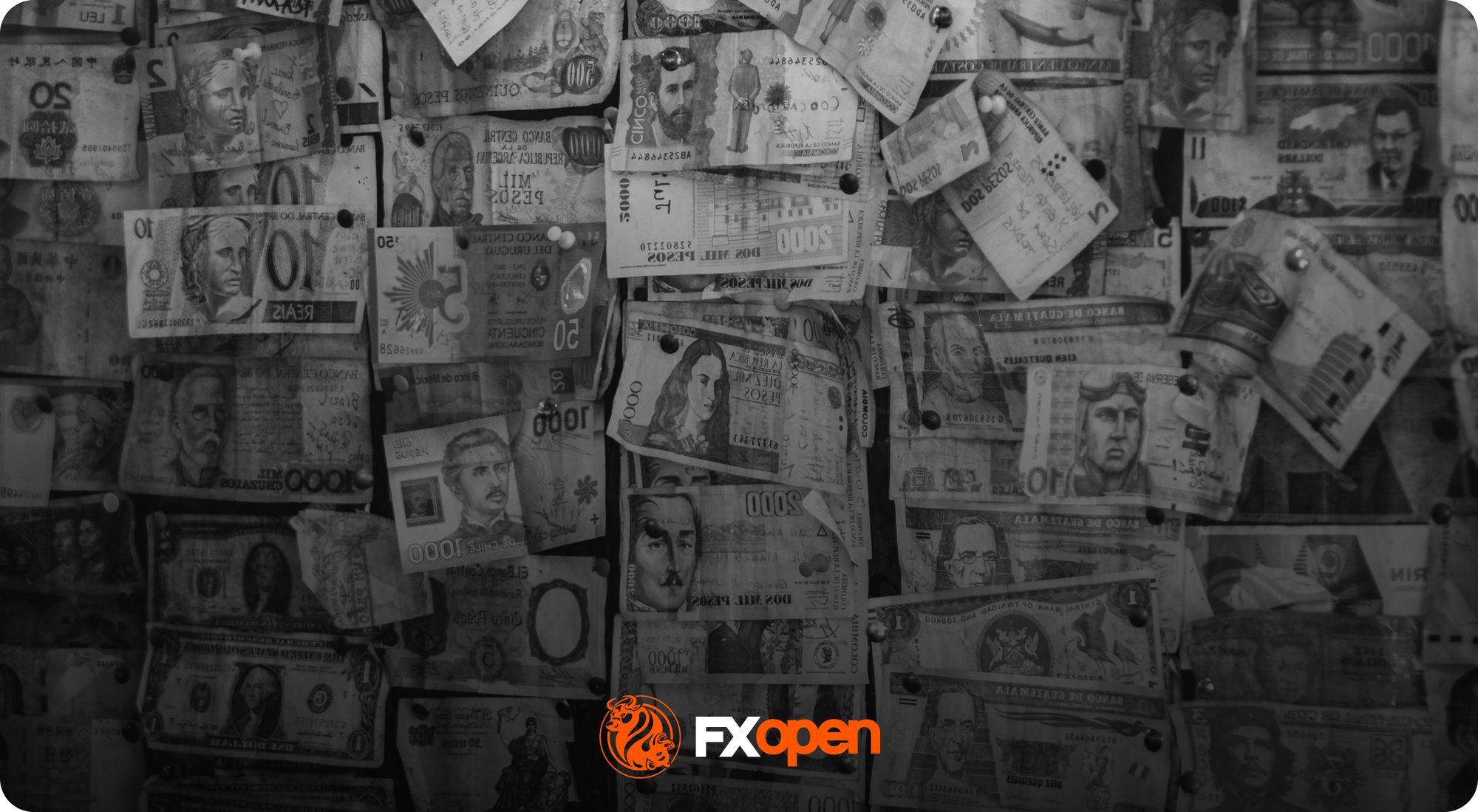FXOpen

In an interconnected world like the one we live in, countries try to get a competitive edge against each other by all means possible. Currencies do not fulfill solely a local role but have a significant influence on international trade.
Its interest rate level gives the value of a currency. However, not always a higher interest rate equates with a higher currency. For instance, in today’s Argentina, the interest rate level reached an incredible 60%, but the currency still depreciates or loses value against other currencies with much lower interest rate level.
Besides the interest rate level, it is all about trust when dealing with currencies. While central banks try to keep inflation around to two percent to fulfill their mandate, they do not act based on inflation changes only.
Excessive Monetary Policy Conditions
Consider Switzerland. One of the strongest economies in the world, yet it keeps the interest rate on the CHF (Swiss Franc) well below the zero level. Yes, for years now, the SNB (Swiss National Bank) pays a negative interest rate for any overnight deposit made by Swiss commercial banks.
The idea behind the negative interest rates is to stimulate commercial banks to invest in the economy. In other words, to loan to businesses and individuals, with the absolute outcome of boosting consumption.
This is called an easy monetary policy. However, also when a central bank cuts the interest rate from, say, two percent to one-and-a-half, that’s still easing. Hence, keeping the rates into the negative territory for such a long time, while the economy isn’t in a recession, is the equivalent of flooding the economy with cheap money.
Studies show that cheap money, or a currency that depreciates against its free-floating counterparts, stimulates exports. Higher exports than imports lead to current account excedent, a big plus for any capitalistic economy.
However, most of the developed nations drown in debt, with deficits mounting year after year. The United States is just one of them, with the debt pilling in, outpacing trillions and trillions of dollars. And, keeps rising.
The Federal Reserve of the United States never moved the federal funds rate below zero. In fact, it embarked in a tightening cycle, raising them back to almost two percent at the time this article is written.
The interest rate differential in similar parts of the world brings into question the financial wars of the 21st century. Not once, the United States accused other developed countries of keeping the value of their currencies artificially low.
In fact, one of the reasons why the United States is currently negotiating new trade deals with most of its traditional partners comes from the artificial devaluation of currencies.
It even accused the European Central Bank of keeping the rates on the Euro artificially low, to stimulate exports and hurt imports from other countries. In a way, that’s correct, as the Eurozone economy expands at a nice pace, with no need for having an ultra-low monetary policy.
But the answer from the ECB’s President Draghi was that even with the interest rates rising in the United States, and in negative territory in the Eurozone, the EURUSD moved from 1.06 to 1.25.
In other words, the USD depreciated while interest rates in the United States rose, while Euro appreciated while the ECB keeps the interest rates below zero.
Conclusion
Financial markets do not reflect the fundamental reality all the time. It is all about the flows influx and outflux in an economy, as investors ever search for the highest yield possible.
In the currency market, the interest rate level is a way to keep score among various fiat currencies. However, it also acts as an excellent combat tool in the financial wars with multiple economies in the world.
This article represents the opinion of the Companies operating under the FXOpen brand only. It is not to be construed as an offer, solicitation, or recommendation with respect to products and services provided by the Companies operating under the FXOpen brand, nor is it to be considered financial advice.
Stay ahead of the market!
Subscribe now to our mailing list and receive the latest market news and insights delivered directly to your inbox.









